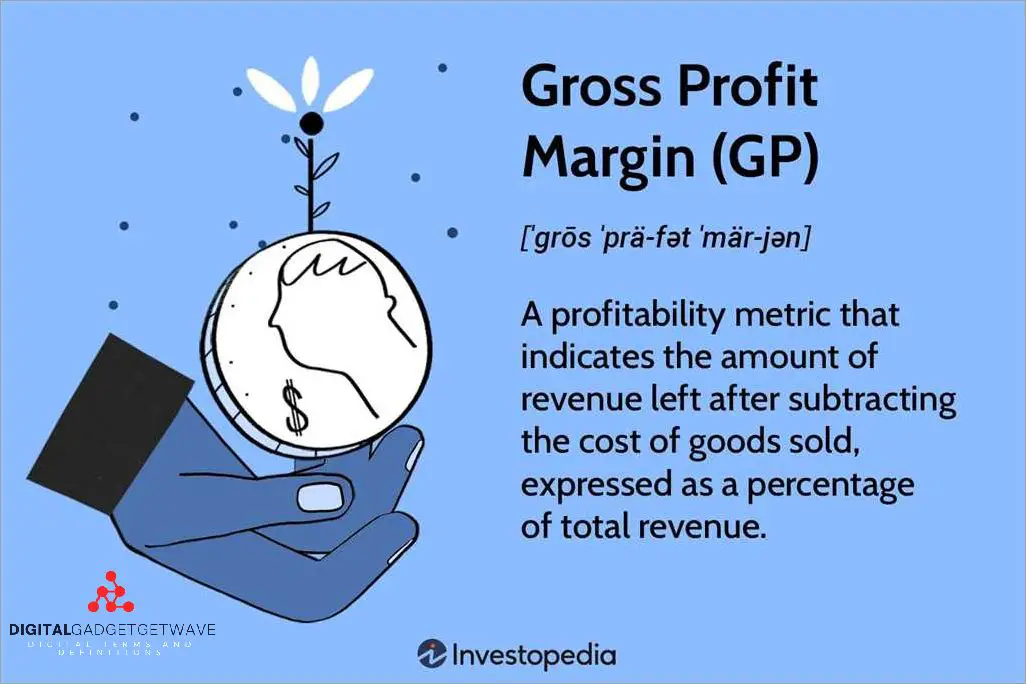
A GP, or general physician, is a primary healthcare professional who plays a crucial role in the overall health and well-being of individuals. GPs are trained to provide diagnosis, treatment, and consultation services for a wide range of medical conditions. They work in clinics and practices, often within a surgery setting, where they see patients and prescribe appropriate medication.
When a patient makes an appointment with a GP, they can expect to receive comprehensive medical care. GPs have extensive knowledge in various areas of medicine and are able to evaluate symptoms, provide accurate diagnoses, and develop appropriate treatment plans. They may refer patients to specialists if necessary, but often they are able to address and manage most healthcare needs on their own.
In addition to their medical expertise, GPs also provide essential support and guidance to their patients. They offer advice on lifestyle choices, help manage chronic conditions, and promote overall wellness. GPs work closely with a team of nurses and other healthcare professionals to ensure that patients receive the best possible care and treatment.
The role of a GP goes beyond the traditional doctor-patient relationship. GPs are often seen as the first point of contact for individuals seeking medical assistance. They provide a vital service in their communities by offering accessible healthcare and ensuring that patients receive timely and appropriate medical attention. Whether it’s a routine check-up, a minor ailment, or a more serious health concern, GPs are there to provide the necessary care and support.
Contents
- 1 What Does GP Mean?
- 2 Definition of GP
- 3 Uses of GP
- 4 FAQ about topic “What Does GP Mean? Find Out the Definition and Uses”
- 5 What does GP mean?
- 6 What are the qualifications required to become a GP?
- 7 What services does a GP provide?
- 8 Are there any limitations to the treatment provided by a GP?
- 9 Can a GP prescribe medication?
What Does GP Mean?
A GP, or General Practitioner, is a primary healthcare professional who provides medical care for patients in a general practice or clinic setting. GPs are often the first point of contact for patients seeking healthcare services, and they play a crucial role in diagnosing and treating a wide range of medical conditions.
GPs are trained to handle a variety of health issues and provide comprehensive care to their patients. They can perform medical examinations, order diagnostic tests, make diagnoses, prescribe medication, and offer treatments for acute and chronic illnesses.
When you visit a GP, you may schedule an appointment to discuss your health concerns. During the appointment, the doctor will ask about your symptoms, perform a physical examination, and may request further tests or referrals to specialists if needed. GPs also provide preventive care, such as vaccinations and health screenings, to ensure their patients’ overall well-being.
A GP’s role extends beyond just providing medical care. They also act as a source of medical advice and guidance for patients, offering information on lifestyle changes, disease prevention, and management of chronic conditions. GPs build relationships with their patients, which allows for continuity of care and personalized treatment plans.
In many countries, GPs are an essential component of the healthcare system, serving as a first point of contact between patients and the broader medical community. They help coordinate care with other healthcare professionals and specialists to ensure that patients receive the most appropriate and timely treatment.
Definition of GP
A GP, or general practitioner, is a primary healthcare professional who plays a vital role in the healthcare system. GPs are typically a patient’s first point of contact for any health concerns or medical issues. They provide a wide range of medical services such as diagnosis, treatment, and ongoing care for various health conditions.
A GP works in a GP surgery or practice, which is a clinic where patients can make appointments to see a doctor. The GP’s primary responsibility is to assess and manage patients’ health concerns, whether they are physical, mental, or emotional. They often work alongside nurses and other healthcare professionals to provide comprehensive care.
When a patient visits a GP, the doctor will listen to their symptoms, perform a physical examination, and may order diagnostic tests if necessary. Based on the findings, the GP will make a diagnosis and develop a treatment plan. This may include prescribing medication, providing medical advice, or referring the patient to a specialist for further evaluation.
GP consultations are an essential part of primary healthcare. They contribute to early detection and prevention of diseases, promote health and well-being, and help manage chronic conditions. GPs also provide routine care such as vaccinations, health screenings, and contraception services.
Patients often develop a long-term relationship with their GP, as these healthcare professionals provide continuity of care. GPs not only treat acute illnesses but also offer ongoing management for chronic conditions, including regular check-ups, monitoring medication effectiveness, and modifying treatment plans as needed.
Overall, GPs are fundamental to the healthcare system. They serve as the first line of defense for patients, ensuring their health concerns are addressed promptly and appropriately. With their expertise and experience, GPs play a crucial role in promoting the well-being of individuals and communities.
Uses of GP

General practitioners (GPs) play a vital role in the healthcare system, providing a range of important services to patients. GPs are doctors who work in general practice or GP surgeries, where they offer primary healthcare to individuals of all ages. One of the main uses of a GP is to seek medical advice and treatment for various health concerns.
Patients typically make appointments with their GP for a variety of reasons, such as general health check-ups, preventive care, and the management of chronic conditions. GPs are trained to diagnose and treat a wide range of medical conditions and can provide referrals to specialists, if necessary.
GPs also offer ongoing care and support to patients, monitoring their health and providing preventative services. This can involve regular check-ups, screenings, and vaccinations. GPs can play a key role in promoting overall health and well-being through advice on lifestyle changes, such as diet and exercise.
In addition to consultations and treatments, GPs also provide important administrative services. They can issue prescriptions for medications, providing patients with the necessary medications to manage their conditions. GPs can also provide medical certificates, outlining the reason for absence from work or school.
Furthermore, GPs work closely with other healthcare professionals, such as nurses and specialists, to coordinate comprehensive care for their patients. They may refer patients to specialized clinics for further diagnosis or treatment, ensuring that the patient receives the most appropriate care for their specific needs.
In summary, GPs are essential healthcare providers who offer a wide range of services to patients. From consultations and treatments to preventive care and medical certificates, GPs play a vital role in promoting and maintaining the overall health and well-being of individuals.
GP in Medicine
A GP, which stands for General Practitioner, is a primary care physician who provides medical services to patients in a general medical practice. They are the first point of contact for patients seeking healthcare and play a crucial role in the healthcare system.
GP services include a wide range of medical care, such as routine check-ups, diagnosis and treatment of common illnesses, prescribing medications, and providing referrals to specialists for further evaluation and treatment. They are trained to provide comprehensive healthcare and are often the primary care provider for patients of all ages.
When patients visit a GP, they usually schedule an appointment at a GP clinic or medical practice. During the appointment, the GP will listen to the patient’s concerns, perform a physical examination, and ask questions to diagnose the medical condition. They may also order diagnostic tests, such as blood tests or imaging, to aid in the diagnosis.
Once a diagnosis is made, the GP will discuss the treatment options with the patient, which can range from lifestyle changes and over-the-counter medications to referrals to specialists or prescription medications. They provide primary care services and are responsible for managing and coordinating the overall healthcare of their patients.
In addition to the physician, a GP practice may have other healthcare professionals, such as nurses and medical assistants, who assist in patient care. The nurse may handle tasks such as taking vital signs, administering vaccinations, and providing patient education. This collaborative approach ensures high-quality healthcare services for patients.
Overall, GPs play a critical role in the healthcare system, providing essential medical care and acting as the first line of defense for patients seeking healthcare services. They provide primary care services, diagnose and treat common illnesses, and coordinate the healthcare of their patients. GPs are an important foundation of the healthcare system, promoting the health and well-being of individuals and communities.
GP in Mathematics

In mathematics, GP stands for Geometric Progression. Geometric Progression is a sequence of numbers in which each term after the first is found by multiplying the previous term by a fixed, non-zero number called the common ratio.
Geometric Progressions are widely used in various mathematical concepts and applications. In finance, it is used to calculate compound interest and investment growth. In physics, it is used to represent exponential growth or decay. In computer science, it is used in algorithms for pattern recognition and data compression.
In a Geometric Progression, each term can be represented as an exponential function with the common ratio as the base. For example, if the first term is ‘a’ and the common ratio is ‘r’, the nth term of the Geometric Progression can be expressed as:
a * r^(n-1)
The sum of a Geometric Progression with ‘n’ terms can be calculated using the formula:
S = a * (1 – r^n) / (1 – r)
Geometric Progressions have wide applications in many areas of mathematics and beyond. They provide a useful tool for modeling and analyzing various phenomena, making them an important concept in the field of mathematics.
FAQ about topic “What Does GP Mean? Find Out the Definition and Uses”
What does GP mean?
GP stands for General Practitioner, which refers to a medical doctor who provides primary care services to patients of all ages.
What are the qualifications required to become a GP?
To become a GP, one needs to complete a medical degree, followed by a residency program in general practice. After completing the residency, a doctor can pursue specialization in general practice by obtaining the necessary certifications and licenses.
What services does a GP provide?
A GP provides a wide range of medical services, including routine check-ups, preventive care, diagnosing and treating common illnesses and injuries, managing chronic conditions, and referring patients to specialists when necessary.
Are there any limitations to the treatment provided by a GP?
While GPs are trained to handle a variety of medical conditions, there are certain situations where specialized care may be required. For complex medical conditions or specialized procedures, a GP may refer the patient to a specialist who has expertise in that particular area.
Can a GP prescribe medication?
Yes, GPs are authorized to prescribe medication to their patients. They have a broad knowledge of pharmaceuticals and can prescribe both common medications and those specific to certain medical conditions.


